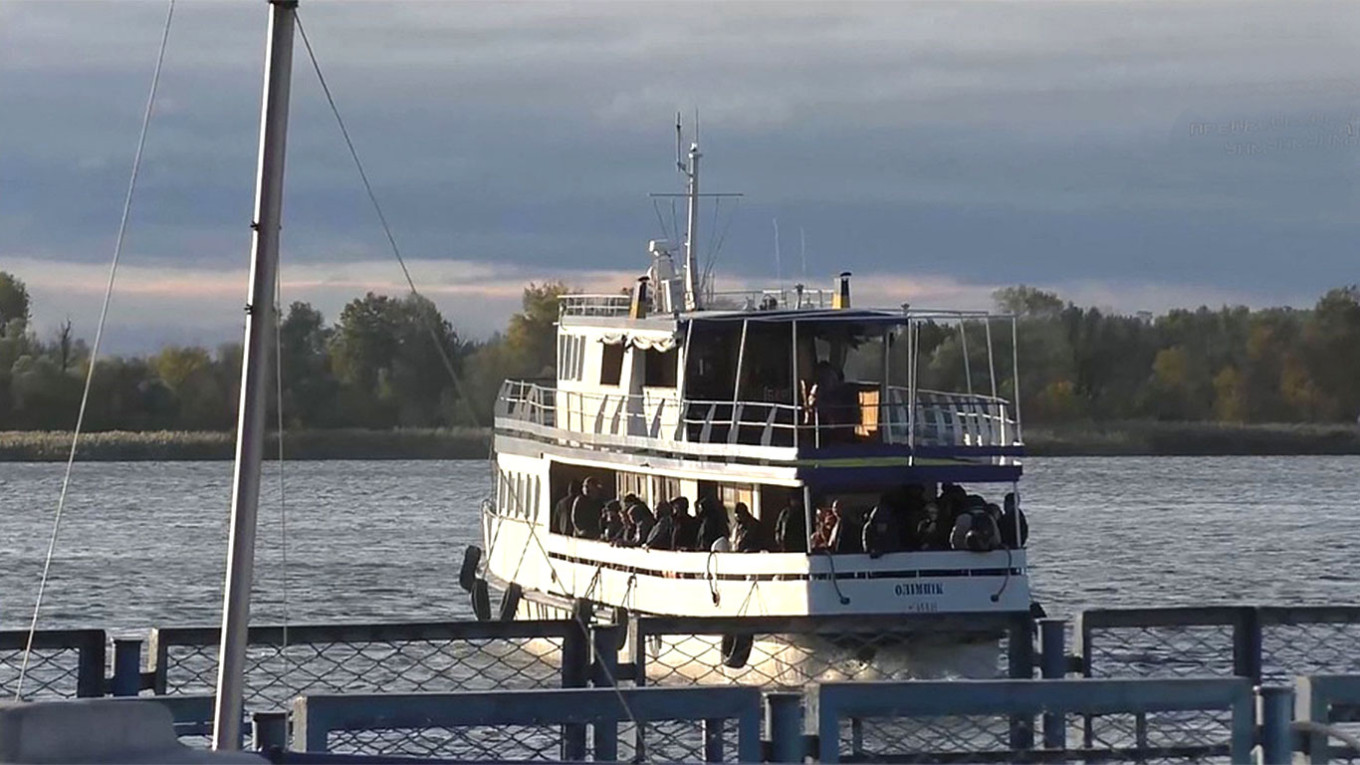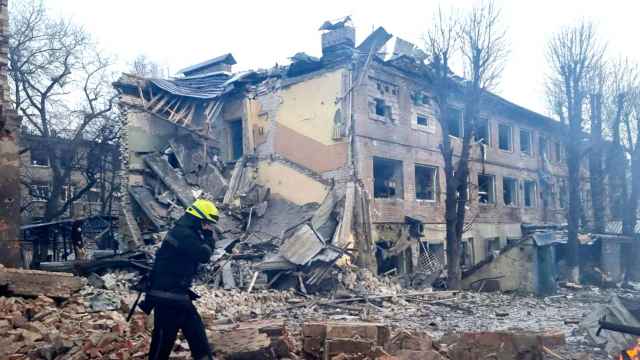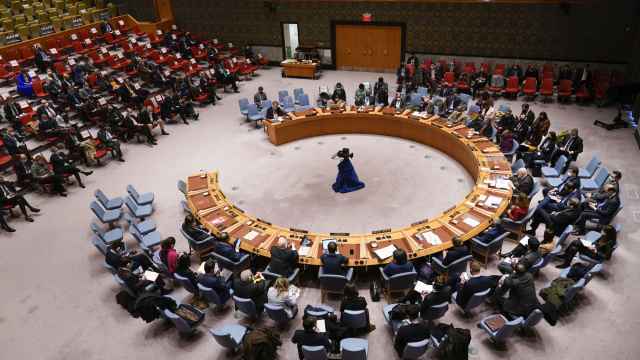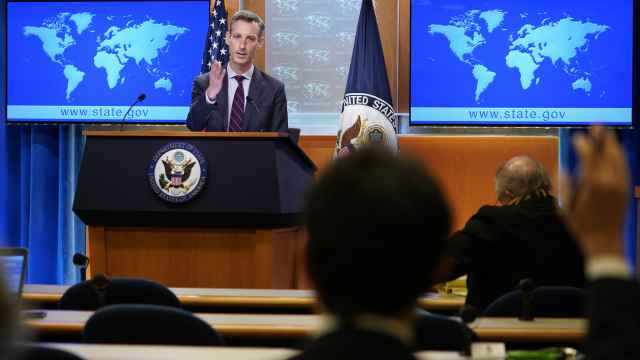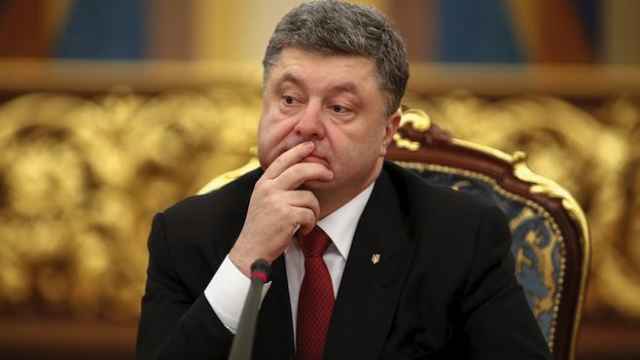Russian forces have been moving thousands of civilians in the occupied southern Ukrainian region of Kherson over the Dnipro River and deeper into Russian-occupied territory this week.
The evacuations, announced by the region’s Kremlin-installed governor Vladimir Saldo, followed warnings from Moscow that Kyiv’s southern counteroffensive meant the regional capital, Kherson, could be recaptured.
But Kyiv has condemned the evacuation, describing it as an attempt to forcibly deport Ukrainian citizens and settle them in Russia, tactics that Ukrainian officials say the Kremlin has been employing since the war in Ukraine began.
Three days into Moscow’s evacuations, we explain the current situation in the Kherson region and what it means as Ukrainian forces continue their advance.
Why is Kherson important to Russia and why are they evacuating it?
Kherson is one of Ukraine's most economically and strategically important regions despite having a population of just over 1 million people when the war began. Set on the Black Sea and bisected by the delta of the giant Dnipro River, Kherson also forms part of a land bridge connecting the Russian-annexed Crimean Peninsula to mainland Russia. Russian forces gained control of the regional capital, also called Kherson, on Mar. 2.
However, Russian military positions on the right bank of the Dnipro are increasingly under threat from the Ukrainian military’s southern counteroffensive launched in late August with Kyiv’s forces targeting the bridges used as Russian supply lines and eliminating evacuation routes.
Ukrainian forces have managed to push Russian troops in the region back 30 kilometers in the past few weeks, putting Russian forces in the city of Beryslav under pressure, and prompting the Moscow-installed regional authorities to evacuate 60,000 civilians to the other side of the river.
"Where the military operates, there is no place for civilians," Saldo said.
Who is being evacuated and where are they going?
"Don’t bring more than 50 kilograms of luggage," read an announcement on the Kherson.Ru Telegram channel on Wednesday.
Russian state television showed footage of hundreds of civilians waiting on the banks of the Dnipro to be evacuated by ferry to the port towns of Alyoshki and Golaya Pristan on the other side.
"On Oct. 20, about 15,000 people moved to the left bank of the region," the press secretary to the Kherson region’s Moscow-installed deputy governor told The Moscow Times on Friday.
The pro-Russian administration initially focused its evacuation efforts on civilians living in the towns of Berislav, Belozersky, Snigiryovsky, and Aleksandrovsky, but by Friday it was urging anyone in the Russian-controlled areas of northern Kherson region to evacuate.
"The most important thing now is to quickly leave for the left bank," an announcement on the Kherson.Ru Telegram channel read Friday. Authorities said that temporary accommodation and onward transport would be provided for all those evacuating.
How are people leaving Kherson?
Ukraine’s efforts to strangle Russian supply lines in the past month have left Moscow with limited means of moving people and supplies across the river. All three bridges that straddle the waterway around Kherson city have been struck by U.S.-supplied HIMARS systems in recent months.
Satellite imagery has shown that Moscow has been relying on pontoon ferries south of Kherson city, as well as a number of temporary bridges around the Nova Kakhovka dam, 75 kilometers to the city’s northeast.
What are Kyiv’s concerns?
Throughout the conflict, Moscow is believed to have forcibly resettled thousands of Ukrainian citizens inside Russia, a tactic Kyiv condemns as a war crime and an effort to erase Ukrainian identity.
Iryna Vereshchuk, Ukraine’s deputy prime minister, claimed in June that 1.2 million Ukrainians had been forcibly taken to Russia, including 240,000 children.
Many civilian voices of resistance have been silenced over the nearly eight months of Russia’s occupation of Kherson. One BBC report revealed how Russian troops were using violence to force residents to cooperate, making it difficult to know how voluntary the current evacuations are.
What is the false-flag attack predicted by Ukraine?
Another concern raised by Ukrainian President Volodymyr Zelensky earlier this week involves the possibility of a Russian false-flag attack on the region’s Nova Kakhovka dam, which could potentially cause catastrophic flooding.
"According to our information, the aggregate and dam of the Kakhovka hydroelectric power plant were mined by Russian terrorists," Zelensky said in his daily address on Thursday.
Destroying the dam, and flooding the Kakhovka reservoir which stores 18.3 cubic kilometers of water, just 4 cubic kilometers shy of Italy’s Lake Como, would create meters of floodwater across the region, destroying homes and potentially killing scores of civilians.
But blowing up the dam, the sixth and final water plant in the Dnipro cascade, would also dry up the canal that supplies the Russian-annexed Crimean Peninsula with water.
Perhaps more concerningly, Kherson’s pro-Moscow administration has already begun warning that Kyiv could "stage" further massacres of Ukrainian civilians, something Kremlin officials accused Ukraine of doing in April following the discovery of mass graves in the formerly Russian-occupied town of Bucha.
"Russia will be maliciously accused of the mass murder of civilians in the Kherson region during the Ukrainian army’s offensive," said a post shared Friday by the pro-Moscow Kherson administration.
"The provocative scene will be copied from Bucha," the post added.
A Message from The Moscow Times:
Dear readers,
We are facing unprecedented challenges. Russia's Prosecutor General's Office has designated The Moscow Times as an "undesirable" organization, criminalizing our work and putting our staff at risk of prosecution. This follows our earlier unjust labeling as a "foreign agent."
These actions are direct attempts to silence independent journalism in Russia. The authorities claim our work "discredits the decisions of the Russian leadership." We see things differently: we strive to provide accurate, unbiased reporting on Russia.
We, the journalists of The Moscow Times, refuse to be silenced. But to continue our work, we need your help.
Your support, no matter how small, makes a world of difference. If you can, please support us monthly starting from just $2. It's quick to set up, and every contribution makes a significant impact.
By supporting The Moscow Times, you're defending open, independent journalism in the face of repression. Thank you for standing with us.
Remind me later.


